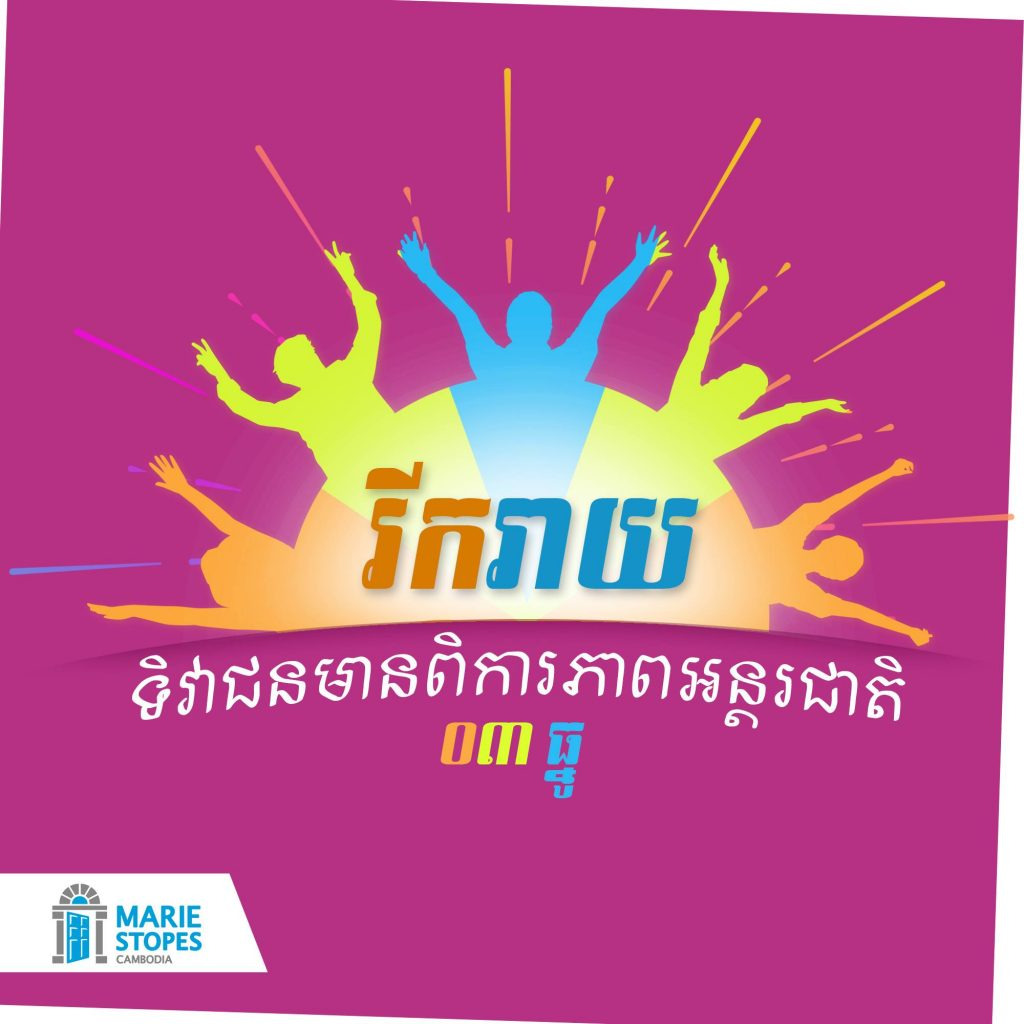
Inclusivity is defined as the practice of including everyone, especially people who have marginalized or excluded, and that includes persons with disabilities.
For so long, persons with disabilities were deemed to be lesser than people without; thus, not being given the same opportunities that hinder them from achieving their full potential.
Recognizing this problem, in 1992, the United Nationals General Assembly proclaimed December 3rd as the International Day of Persons with Disabilities. The day is to promote the rights and well-being of persons with disabilities in all spheres of society and development, as well as to increase awareness of the situation of persons with disabilities in every aspect of political, social, economic and cultural life. [1]
Sexual reproductive right is no different. Persons with disability make up 10 percent of the world’s population, and yet, they are amongst the most marginalized when it comes to sexual reproductive care. Reasons ranging from lack of awareness and understanding, prejudice and stigma, physical and attitudinal barriers to health services to exclusion of persons with disabilities from decision-making can prevent them from accessing the best quality sexual health care that they deserve.
Due to this, it’s crucial that organizations and institutions are sensitive to the needs of persons with disabilities when making decisions or designing policies and projects because disability is everyone’s business. Providing access means more than simply installing ramps; it’s about mainstreaming health services to accommodate persons with abilities. Persons with disabilities are a crucial constituency in all programmes.
The work that Marie Stopes International Cambodia does is no different. We celebrate people from all walks of life and empower them to make their own choices for their body, including people with disabilities. Our providers are rigorously train to be sensitive, empathetic and understanding of clients who are persons with disabilities, while also ensuring that their privacy, self-determination, and dignity are fiercely respected.
Our centres have welcomed a number of clients with disabilities, including a woman with visual impairment with whom we have consulted her in the process of getting the right contraception. The training for our Marie Stopes Ladies also includes how to provide the best quality services to persons with disabilities because everyone that seeks our services, whether at our centres or with Marie Stopes Ladies, deserves the utmost quality care to ensure that they can make decisions on their body and future.
Persons with disabilities want the same things in life that everyone wants, and that includes physical intimacy and sex. Because of this, they need sexual reproductive healthcare that is of quality and respect from healthcare providers.
With this in mind, the International Day of Persons with Disabilities serves as a reminder that persons with disabilities are to be empowered and celebrated so that they, too, can reach their full potential and make decisions on their own future—their own body.
For more information or services, please email [email protected] or call us at 012999002 / 098999102, and visit our Facebook page: Marie Stopes International Cambodia.
[1] https://www.un.org/en/observances/day-of-persons-with-disabilities








